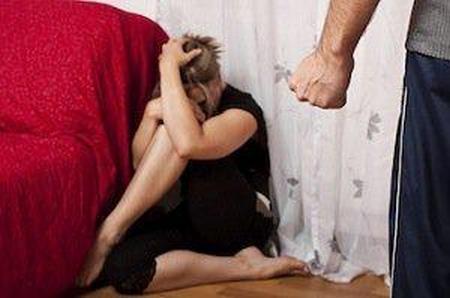How Often is Domestic Violence Occurring?
 In just the first three months of 2014, it happened over 36,000 times. In 2013, it happened over 177,000 times. What are these statistics referring to? Domestic violence.
In just the first three months of 2014, it happened over 36,000 times. In 2013, it happened over 177,000 times. What are these statistics referring to? Domestic violence.
Illinois takes domestic violence seriously, and the Illinois Domestic Violence Act gave victims a tool to help combat abuse and separate from their spouse. Orders of protection can make an abuser take (or not take) a number of actions that will help ensure the safety of the victim, their loved ones, and their property.
Who Can Get an Order of Protection?
There are two basic requirements that must be met before a person can obtain an order of protection. First, the person must have been abused. Second, his or her abuser must be a member of the family or household.
Abuse can take many different forms. The Illinois Domestic Violence Act recognizes five acts of aggression as “abuse.” These acts include physical abuse, harassment, intimidation of a dependent, interference with personal liberty, and willful deprivation. The following provides a description of each of these terms:
-
“Physical abuse” includes assault, battery, and sexual violence, as well as knowingly engaging in conduct that could cause physical harm;
-
“Harassment” is intentional conduct that is unnecessary, that could cause emotional distress to the victim, and that does cause emotional distress to the victim. An example of this might be disturbing the victim at work or threatening the safety of the victim’s child;
-
“Intimidation of a dependent” occurs when the abuser forces the victim to engage in (or watch) acts of violence against another;
-
“Interference with personal liberty” means threatening a person with harm so that that person either undertakes conduct they do not want to, or refrains from engaging in conduct that they are legally entitled to undertake; and
-
“Willful deprivation” occurs when the abuser intentionally withholds a necessity (such as food or medicine) from their victim so that the victim’s well-being is put in jeopardy.
The definition of “family or household member” is actually quite broad. It refers not only to current and former spouses, but also to children, siblings, other blood relatives, people who live together or did live together, couples who are or were dating, couples with a common child, and the relationship between a disabled person and their caregiver. The gender of the parties has no effect on whether they qualify as “family or household members.”
Types of Orders
There are three basic types of protection orders in Illinois: emergency, interim and plenary.
Emergency orders are issued only in exigent circumstances, such as when there is an imminent threat of harm to the petitioner or their family. The abuser does not need to be present for the order to be issued, and the orders can last for 14-21 days.
Interim orders may be granted after both the accuser and the abuser have been before the judge. They are often granted during the lapse of time between the expiration of an emergency order and the hearing for a plenary order. They may last for up to 30 days.
Plenary orders are put in place after there has been a full hearing on the facts of the case. If the judge agrees that the victim needs continued protection, the order may be granted. These orders can last for up to two years and may be renewed indefinitely.
What Can an Order of Protection Do?
Protective orders are flexible creations that are easily adapted to the facts of a case. Emergency orders can require the abuser to stay away from the victim and their children; to leave the victim’s house; to not take any of the victim’s personal property; and to yield their firearms. Interim and plenary orders can do all of same; plenary orders can also award legal fees, decide child custody and visitation and more.
Contact an Illinois Divorce Attorney
There is help for people trying to escape abusive relationships. Orders of protection are powerful tools, especially for domestic violence victims who are seeking a divorce against their abusers. If you are trying to leave your abuser and have questions about orders of protection, contact the experienced DuPage County family law attorneys at Mevorah & Giglio Law Offices. Let us help you work toward your future.
 English,
English,
 Spanish,
Spanish,
 Polish,
Polish,
 Urdu
Urdu













 Make a Payment
Make a Payment



